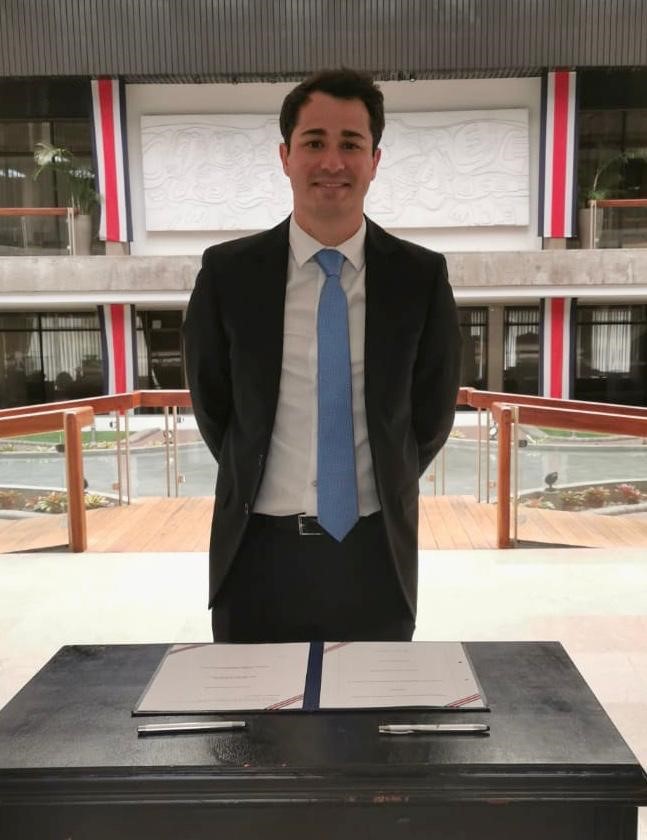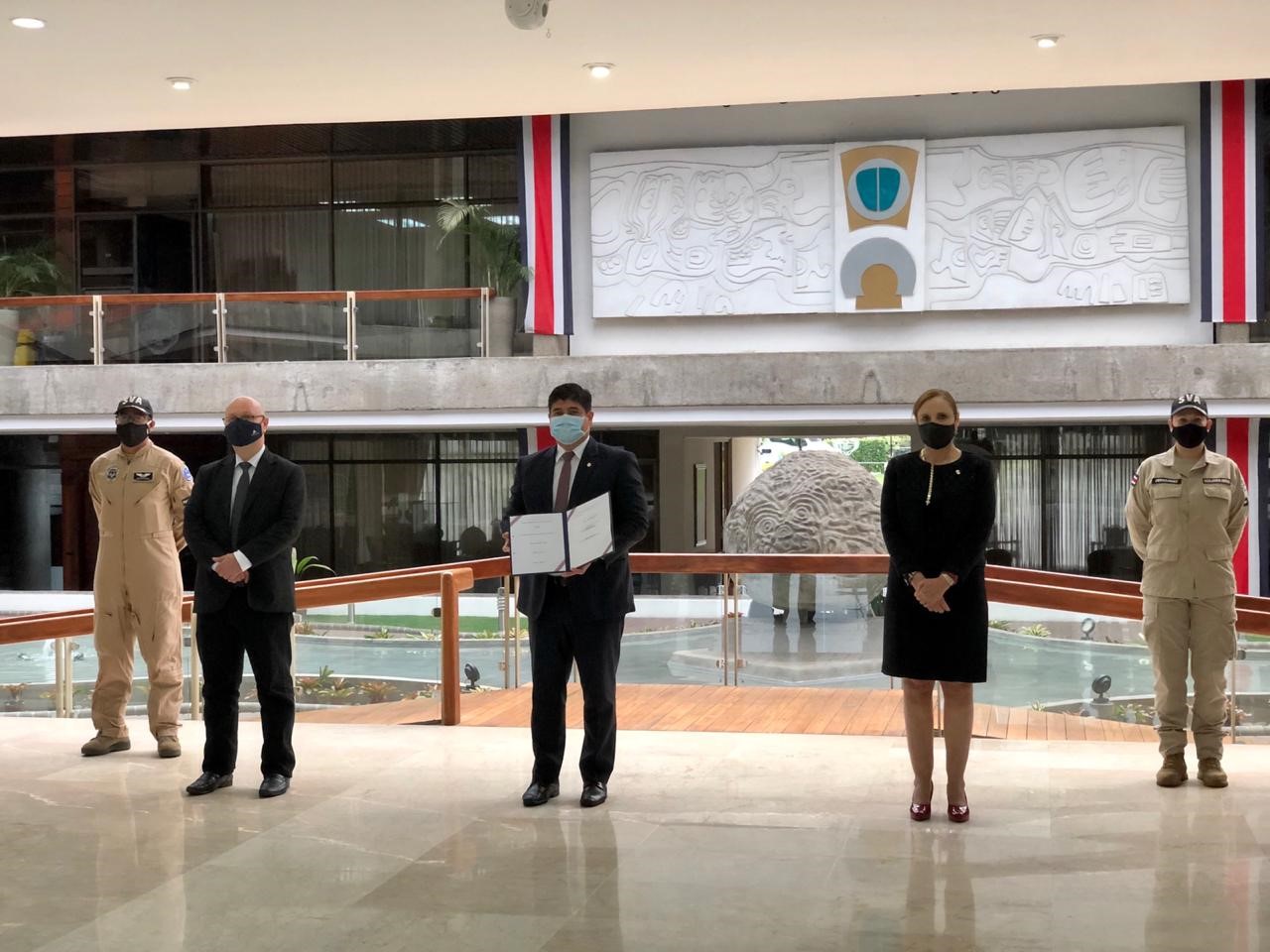
Marshall Center Alumnus instrumental in New Law in Costa Rica to Disable Clandestine Airstrips
By Public Affairs Office
George C. Marshall European Center for Security Studies
SAN JOSÈ, Republic of Costa Rica (Sept. 23, 2020) – The Law to disable unauthorized landing strips was signed by the President of Republic of Costa Rica Carlos Alvarado and the Minister of Public Security, Government and Police, Michael Soto Sept. 23.
This law allows the police to disable, demolish and destroy – for reasons of national security – unauthorized air landing strips.

Alex Solis Quiros, advisor to the legislative assembly in Costa Rica, is an alumnus of the Program on Countering Transnational Organized Crime at the George C. Marshall European Center for Security Studies.
He helped craft this law, which disrupts the flow of drugs to the United States.
“After a year of very hard work, today the president of Costa Rica signed a law that enables the government to disable illegal landing strips used by the drug traffickers,” said Quiros, who attended the Marshall Center’s CTOC in August 2019.
“The idea to do this came to me during my time last year at the Marshall Center,” he said. “This law is one more step that our country is taking in the fight against transnational organized crime and in great part is due to the knowledge and network acquired at the Marshall Center.”
“This demonstrates our ability to bring to life the President’s Strategic Priorities and Department of Defense National Defense Strategy,” said Steve Johnston, Senior Advisor Source Country Policy and Budget for the Office of National Drug Control Policy, Executive Office of the President. “Professor Vann and his team at the Marshall Center are taking their Countering Transnational Organized Crime program from theory to practice.”
Over the past three years, ONDCP has sponsored a segment of the Marshall Center’s CTOC Course of Interest workshop, with senior international leaders, such as Supreme Court justices, parliamentarians and senior military and civilian leaders.
The Marshall Center’s CTOC program focuses on the national security threats posed by a wide range of transnational criminal activities.
This program examines how transnational criminal organizations impact a country’s national security.
It is designed for government officials and practitioners who are engaged in policy development, law enforcement, intelligence, and interdiction activities aimed at countering illicit narcotics trafficking, terrorist involvement in criminal activity, and the associated elements of transnational crime and corruption.
